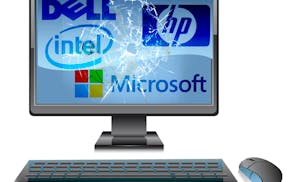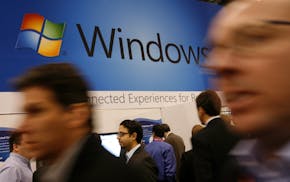Q: I read your column about how two devices sharing an e-mail address also share the deletion of messages (tinyurl.com/pkghdn8). I have just the opposite problem: My PC and iPhone are using the same Gmail account, but the spam (junk e-mail) that I delete with my PC doesn't get deleted from my iPhone. As a result, my iPhone currently has 534 e-mails. What's the problem?
Dale Beebe, Arroyo Grande, Calif.
A: Your Gmail account isn't set up correctly for what you're trying to do. But it can be easily changed.
Gmail supports the two industry-standard methods, or protocols, for handling e-mail. I think your account is set to use POP (Post Office Protocol), which dates back to the mid-1980s and was designed for a time when people accessed their e-mail through a single computer. Your account needs to use IMAP (Internet Message Access Protocol), which came into use in the late 1990s and accommodates multiple devices using the same e-mail account.
What's the difference between the two? POP e-mail only allows one device to access the account at a time. More importantly, POP doesn't keep track of what you do with the messages after you download them from the mail server. As a result, deleting spam on your PC doesn't erase the same spam on your iPhone.
IMAP allows multiple devices to access the same mailbox simultaneously, and also tells the e-mail server whether a message has been read, saved or deleted. As a result, if you delete a message on your PC, it will automatically be deleted from your iPhone, and vice versa.
To enable IMAP, use Gmail on your PC. Go to the "gear" icon on the upper-right hand corner of Gmail and click the pull-down menu. Click "Settings," then click the tab "Forwarding and POP/IMAP." Under "IMAP Access," check "Enable IMAP." Then, below the phrase "When I mark a message in IMAP as deleted," check "auto-expunge on" (this immediately updates the server about the deletion).
You may also need to set up your iPhone's e-mail account again. See "Access Gmail in iPhone Mail Using IMAP" at tinyurl.com/ypwvq3.
Q: We have been receiving calls from people claiming to be from Windows. They say our PC is infected with a virus, and they want us to go to the PC and follow their instructions. I ask them to e-mail the instructions, but they never do and a week later they call again. Is this legitimate?
Gwen Mersky, Excelsior
A: No, it's a scam, and you should hang up whenever they call. They're trying to convince you to let them take remote control of your PC over the Internet. They will then pretend to find viruses on your PC and charge you hundreds of dollars via credit card to remove them. If you don't pay, they may lock your PC so you can't use it. Microsoft, which owns Windows, never calls people at home.
E-mail tech questions to steve.j.alexander@gmail.com or write to Tech Q&A, 425 Portland Av. S., Minneapolis, MN 55488. Include name, city and telephone number.

Alexander: A beeping computer is telling you what's gone wrong inside

Alexander: How to stop deleted iPhone e-mails from coming back

Alexander: Refurbished PCs may need a BIOS update to use new components

Alexander: Windows 11 not always to blame for browser or e-mail problems

